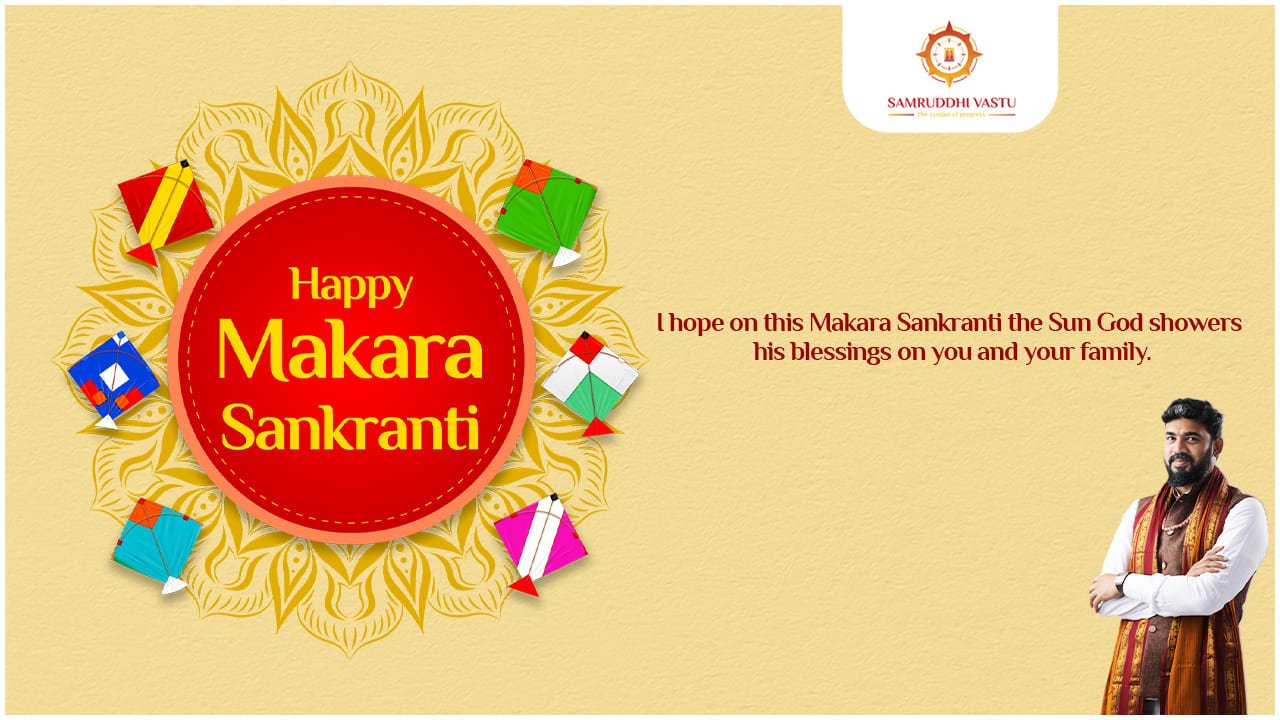Makara Sankranti, also known as Maghi or Pongal, is a widely celebrated Hindu festival that marks the transition of the sun into the zodiac sign of Capricorn. This auspicious occasion falls on the 15th of January every year, and in 2024, it promises to bring joy and festivities once again.
The auspicious timing for performing rituals and ceremonies during Makara Sankranti is determined based on the specific location. The Maha Punya Kala is from 06:46 AM to 08:40 AM.
In this blog post, we will explore the history, significance, and celebrations associated with Makara Sankranti.
History of Makara Sankranti
Makara Sankranti has deep roots in ancient Hindu mythology and is celebrated as one of the most significant festivals in India. The festival holds historical and cultural significance, marking the transition of the sun into the zodiac sign of Capricorn (Makara Rashi) on its celestial path.
The history of Makara Sankranti can be traced back thousands of years to the Vedic period. It is believed that the festival originated from the rituals and practices associated with agricultural traditions. In ancient times, people depended heavily on agriculture for their livelihoods, and Makara Sankranti marked an important phase in the agricultural calendar.
According to Hindu mythology, Makara Sankranti is associated with various legends and stories. One popular legend is the tale of Lord Sun visiting his son Lord Shani (the ruler of Capricorn) during this time. It is said that Lord Shani, who was known for his stern nature, had a strained relationship with his father. Makara Sankranti symbolizes their reunion and reconciliation, signifying the end of conflicts and the restoration of familial harmony.
Makara Sankranti is not only significant in Hinduism but also observed by other communities and religions across India. It is a festival that symbolizes new beginnings, the spirit of unity, and the gratitude towards nature’s bounty. Today, Makara Sankranti continues to be celebrated with great enthusiasm and joy, keeping alive the rich history and traditions associated with this auspicious festival.
States where Makara Sankranti is Celebrated
Makara Sankranti is celebrated with great enthusiasm across different states of India and holds different names and customs in each region. Let’s take a look at some of the prominent names and celebrations across various states
Uttar Pradesh: In Uttar Pradesh, Makara Sankranti is known as Khichdi or Sakat Chauth. Devotees take a dip in holy rivers and make offerings to Lord Sun.
Tamil Nadu: In Tamil Nadu, this festival is celebrated as Pongal. People prepare a special dish called “Pongal” made from newly harvested rice and offer it to the gods.
Karnataka: In Karnataka, Makara Sankranti is called Sankranthi or Suggi Habba. People exchange sugarcane, sesame sweets, and colorful clothing as a symbol of prosperity.
Gujarat: In Gujarat, this festival is known as Uttarayan. People fly colorful kites in the sky, indulge in traditional delicacies like Undhiyu and Jalebi, and participate in vibrant cultural events.
Punjab: In Punjab, Makara Sankranti is celebrated as Lohri. Bonfires are lit, and people sing and dance around them to mark the end of winter.
Significance of Makara Sankranti
Makara Sankranti holds immense significance, both culturally and spiritually
Harvest Festival: This festival marks the end of the winter season and the beginning of the harvest season, celebrating the abundance of crops and the hard work of farmers.
Transition of Seasons: It symbolizes the transition of seasons from winter to spring, signifying new beginnings, growth, and prosperity.
Religious Significance: Makara Sankranti holds religious importance as it is believed that taking a holy bath in sacred rivers during this time cleanses one’s sins and brings spiritual blessings.
What to Do on Makara Sankranti?
Makara Sankranti is a time for celebration, joy, and togetherness. Here are some traditional activities you can engage in on this auspicious day
Take a purifying bath: The purpose of taking a purifying bath during Makara Sankranti is not just physical cleanliness but also spiritual purification. It symbolizes letting go of past negativity and embracing new beginnings
Prepare Traditional Delicacies: Indulge in traditional festive dishes like Til Laddoos, Gajar ka Halwa, Pongal, and Makar Sankranti special sweets made from jaggery and sesame seeds.
Fly Kites: If you’re in Gujarat or other regions where kite flying is a tradition, join in the fun and fly colorful kites in the sky.
Exchange Gifts: Share the joy of Makara Sankranti by exchanging gifts with your loved ones. Traditional items like sugarcane, clothes, and sweets make for thoughtful presents
Decorating Rangoli: Add color and vibrancy to your home by creating beautiful rangolis (traditional floor art) using colored powders or flower petals. These intricate designs not only enhance the festive atmosphere but also bring good luck and prosperity.
Organizing Cultural Programs: Gather your community or neighbourhood and organize cultural programs like bullock cart races, folk dances, music performances, and storytelling sessions. This not only promotes cultural exchange but also strengthens community bonds.
Celebrations of Makara Sankranti
Makara Sankranti is celebrated with fervor and enthusiasm throughout India. The festivities include
Bonfires: Lighting bonfires symbolizes the end of winter and the beginning of longer days. People gather around these fires, sing folk songs, and offer prayers.
Cultural Events: Various states organize cultural events showcasing traditional music, dance performances, and competitions during this time.
Decorations: Homes are adorned with beautiful rangolis (colorful patterns made with colored powders) to welcome prosperity and good fortune.
Charitable Acts: Makara Sankranti is also a time for giving back to society. Donating food, clothes, or money to the less fortunate is considered highly virtuous.
Why is Makara Sankranti Celebrated?
Makara Sankranti holds multiple reasons for celebration
Harvest Season: It marks the culmination of the harvest season when farmers reap the rewards of their hard work and offer gratitude to the gods for bountiful crops
Spiritual Significance: The festival brings people closer to their spiritual roots as they seek blessings from Lord Sun for a prosperous year ahead
Symbol of Unity: Makara Sankranti transcends religious and regional boundaries, bringing people together in celebration and fostering a sense of unity.
Makara Sankranti is a festival that celebrates the beauty of nature, the spirit of harvest, and the joy of togetherness. As we bid farewell to winter and welcome longer days, let us embrace the spirit of Makara Sankranti and embark on a journey filled with hope, prosperity, and new beginnings.
Wishing you all a very HAPPY MAKARA SANKRANTI!!!

